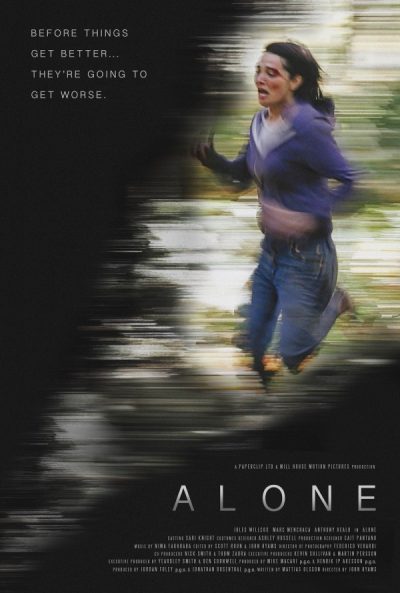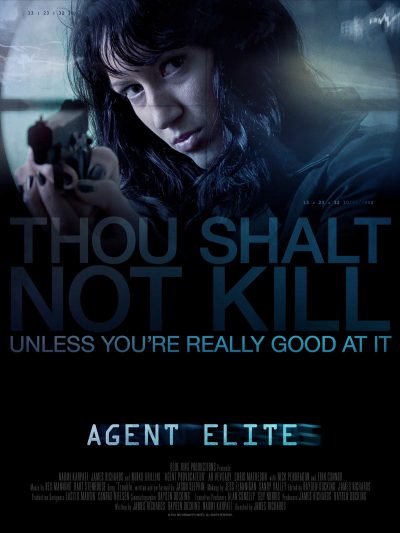★★★
“Constitutional wrongs.”
 As I write this, in December 2021, abortion is again a bit of a hot topic on the American political scene. I am, personally, fairly neutral on the topic. Or, at least, to the point that I’d need to spend the entire review outlining my position. Such nuance tends not to fly on the Internet, where you are either a baby-killer or want to turn America into The Handmaid’s Tale, and moderation is for pussies. On that basis, this film is a bit of a losing proposition, likely destined to satisfy no-one with its relative fair-handedness. These days, it feels like everyone just wants their echo chamber reinforced, rather than challenged, even in the mild way this offers.
As I write this, in December 2021, abortion is again a bit of a hot topic on the American political scene. I am, personally, fairly neutral on the topic. Or, at least, to the point that I’d need to spend the entire review outlining my position. Such nuance tends not to fly on the Internet, where you are either a baby-killer or want to turn America into The Handmaid’s Tale, and moderation is for pussies. On that basis, this film is a bit of a losing proposition, likely destined to satisfy no-one with its relative fair-handedness. These days, it feels like everyone just wants their echo chamber reinforced, rather than challenged, even in the mild way this offers.
It is, certainly, a fringe entry here. Lucy (Mackenzie, the director’s fiancée at the time, now wife) is a girl. Who uses a gun. So there’s that. An action heroine though? Not so much, at least in the genuinely understood definition. Like the topic of abortion, it’s complex. For Lucy is in her final year at a Christian high school, and is shocked to discover that her classmate and best friend, Rachel (Marie), has terminated her pregnancy, in defiance of everything Lucy holds dear. After a moral conundrum (basically, the trolley problem) is posed by a teacher, Lucy decides to save future lives by shooting the doctor (Carey) at the women’s clinic, using a gun belonging to the parents of a classmate, Ralph (Miller). However, does Lucy have the moral fortitude necessary to buttress her actions, or will her qualms about the act lead her down a different path?
Though Mackenzie is too old to make a convincing high-school girl (per the IMDB, she was 28 when this came out), it’s a good performance. You can see the way in which her beliefs lead Lucy down the path, to a point where her actions do not just make sense, they are almost required as a result of those beliefs. Less successful is the “de-programming” element, which largely consists of her teacher blustering, “You can’t sacrifice the minority to save the majority. That’s just not how good society functions.” Well, about that… Seems more like a problem with society, to be honest. It’s an angle which needed more effort applied to it, in order to be convincing.
It is also perhaps a little too understated for its own good. The shooting of the doctor is so low-key, you could blink and miss it, when in many ways, it’s the most important moment in the movie, and should have been weighted in accordance with it. Still, given the budget here was just $11,000, this is no small accomplishment. It looks and sounds like a far bigger budget production, and credit is also due to both of the Mackenzies, for being prepared to take on a challenging topic in a way that tries (largely successfully) to avoid being judgmental. While many independent film-makers go the commercially easy route of genre movies, this is something more challenging. If not without flaws, it should succeed in provoking thought.
Dir: James Mackenzie
Star: Ana Mackenzie, Kendall Miller, Keana Marie, Kristin Carey






 This was a very pleasant surprise. I wasn’t expecting much from this, especially after seeing Wynorski’s name – let’s be honest, he is best known for bargain basement soft-port. That said, he does occasionally hit one out of the park, such as the sublime Deathstalker II. This is definitely one of his better entries, even if it is, by and large, a low-budget version of Assault on Precinct 13.
This was a very pleasant surprise. I wasn’t expecting much from this, especially after seeing Wynorski’s name – let’s be honest, he is best known for bargain basement soft-port. That said, he does occasionally hit one out of the park, such as the sublime Deathstalker II. This is definitely one of his better entries, even if it is, by and large, a low-budget version of Assault on Precinct 13.






